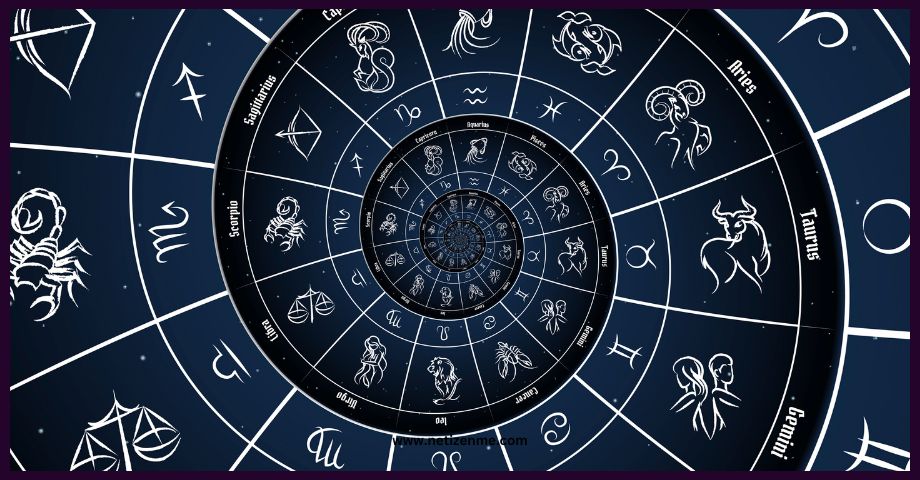South Asian astrology is a captivating and intricate system deeply embedded in the cultural and historical fabric of the region. Its roots trace back thousands of years, and it’s a practice that goes beyond mere fortune-telling. South Asian astrology involves a profound understanding of the cosmos, its influence on human life, and the intricate interplay of celestial bodies with earthly events. In this article, we embark on a celestial journey to explore the world of South Asian astrology, paying homage to some of the most renowned astrologers who have made significant contributions to this mystical art. We’ll delve into their life stories, the wisdom they’ve shared, and the lasting legacy they’ve left behind.
The Origins of South Asian Astrology
South Asian astrology, often referred to as Vedic or Jyotish astrology, is deeply rooted in the sacred texts of the Vedas, the oldest scriptures of Hinduism. The word “Jyotish” itself means the “science of light” and emphasizes the significance of the heavenly bodies and their impact on human life. Over the centuries, South Asian astrology has evolved and incorporated various influences from Greek, Persian, and even Chinese astrology. Today, it is a unique and comprehensive system with principles and practices.
Sages, Scholars, and Stargazers: The Early Pioneers
One of the earliest and most revered astrologers in South Asian history is Varahamihira, a sage and scholar who lived around the 6th century. His work, the “Brihat Samhita,” is a monumental astrological treatise that covers a wide range of topics, from astrology to architecture. Varahamihira’s contributions laid the foundation for many aspects of South Asian astrology still practiced today.
Another luminary in South Asian astrology is Aryabhata, an ancient mathematician and astronomer. His work “Aryabhatiya” not only played a pivotal role in shaping Indian mathematics but also provided insights into celestial motions, which were crucial for astrology.
Brihat Parashara
One cannot delve into South Asian astrology without mentioning the “Brihat Parashara Hora Shastra.” Attributed to the legendary sage Parashara, this text is considered the Bible of Vedic astrology. It covers various aspects of astrology, from casting horoscopes to predicting life events. Prominent astrologers like B. V. Raman have significantly contributed to the interpretation and dissemination of Parashara’s teachings, making them more accessible to modern enthusiasts.
B. V. Raman
B. V. Raman, born in 1912, is widely regarded as one of the most influential astrologers of the 20th century. Dr. B.V. Raman was a renowned astrologer from India and is often called the “Father of Modern Astrology” in the country. He founded the “The Astrological Magazine” and authored numerous books on astrology. Raman was crucial in promoting and modernizing Vedic astrology, making it relevant to contemporary society. Raman’s works, including “Notable Horoscopes” and “300 Important Combinations,” are essential references for aspiring astrologers.
Gayatri Devi Vasudev
Gayatri Devi Vasudev, the daughter of B. V. Raman, is another prominent figure in South Asian astrology. She inherited her father’s legacy and has continued to promote and teach astrology through her writings and publications. Her book “The Art of Matching Charts” is a comprehensive guide to compatibility analysis in astrology.
Renowned Astrologers of the Modern Era
In the contemporary landscape of South Asian astrology, luminaries like K. N. Rao, Sanjay Rath, and Komilla Sutton have made significant contributions to the field. K. N. Rao, a former civil servant, is known for his accurate predictions and role in training a new generation of astrologers. Sanjay Rath, an expert in Jyotish, has worked tirelessly to preserve and disseminate the knowledge of traditional astrology. Komilla Sutton, a pioneer in bringing Vedic astrology to the West, has authored numerous books and played a key role in its global popularization.
South Asia has a rich history of astrology, and several famous astrologers have made significant contributions to this field. Here are a few notable South Asian astrologers:
Varahamihira:
He was an ancient Indian astrologer, mathematician, and astronomer who lived during the 6th century. Varahamihira’s work, known as the “Brihat Samhita,” covers various aspects of astrology, including horoscopy, and it is considered a foundational text in Indian astrology.
K.N. Rao:
K.N. Rao is another prominent Indian astrologer known for contributing to Jyotish, or Vedic astrology. He has authored several books and articles and served as the chief editor of the Journal of Astrology. Rao is known for his accurate predictions and extensive research.
Bejan Daruwalla:
The late Bejan Daruwalla was a prominent Indian astrologer known for his sun sign-based astrology columns and predictions. He had a vast following in India and was known for his distinctive style and persona.
S W Kasthurirathne:
S W Kasthurirathne was a respected astrologer and an author from Sri Lanka who was a peer of B.V. Ramen. He is the founding author of the Lanka Grahasthuta Panchanga Lith book series and founder of Bandarawela Eastern Astrology College, which has produced many expert astrologers in Sri Lanka. His books and teachings still contribute to the advancement in the field of astrology in Sri Lanka.
Ajai Bhambi:
Ajai Bhambi is a notable astrologer and author based in India. He has written various books on astrology and is a well-known figure in the Indian astrological community.
The Legacy Continues: South Asian Astrology Today
Today, South Asian astrology remains a vibrant and thriving tradition. Astrologers, both in the Indian subcontinent and abroad, continue to expand their knowledge and share their insights with the world. While the practice has evolved and adapted to modern times, it still retains its core principles, and the profound wisdom passed down through the ages.
In conclusion, South Asian astrology is a rich and multifaceted discipline with a long and storied history. The contributions of these prominent astrologers have not only preserved the tradition but also propelled it into the modern era. Their dedication, wisdom, and teachings serve as an enduring testament to the significance of South Asian astrology in understanding the cosmos and our place within it. As we look to the stars for guidance and insight, we are indebted to these luminaries who have illuminated our path.
This article is written by:
This article is written and edited by in-house writers and editors. Knowledge Netizen editorial team is committed to providing accurate and informative content. You can cite our articles under the author name "NetizenMe"





